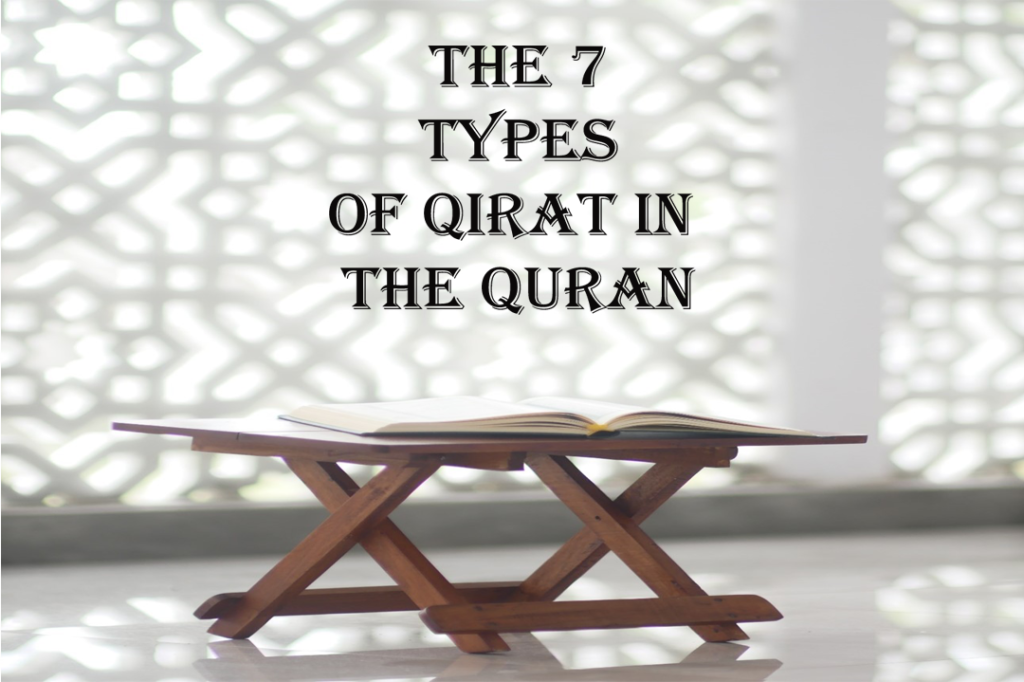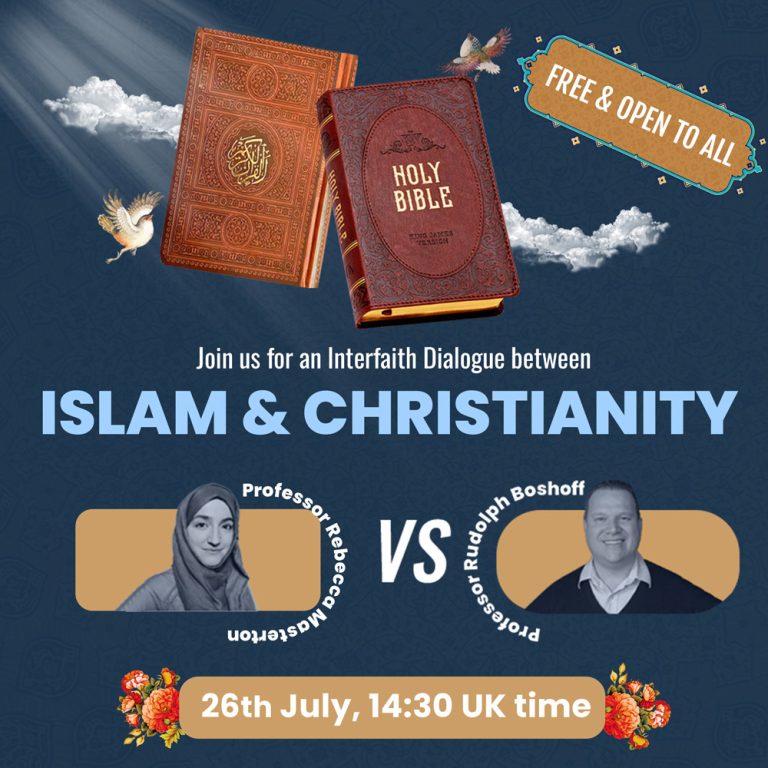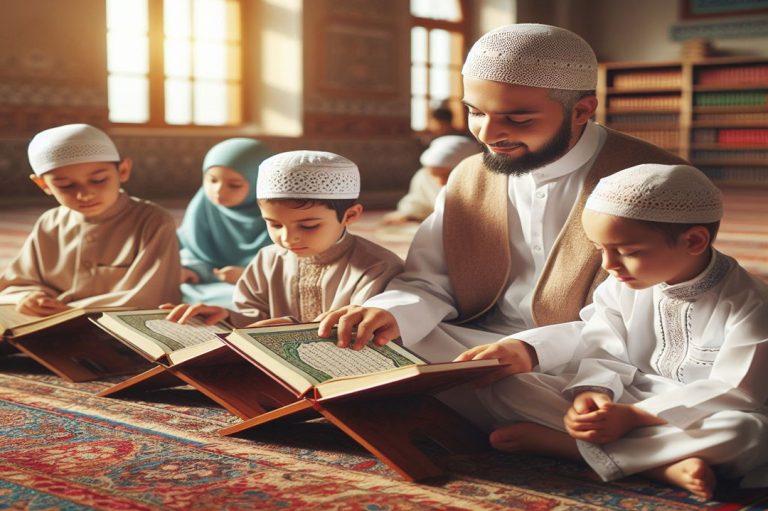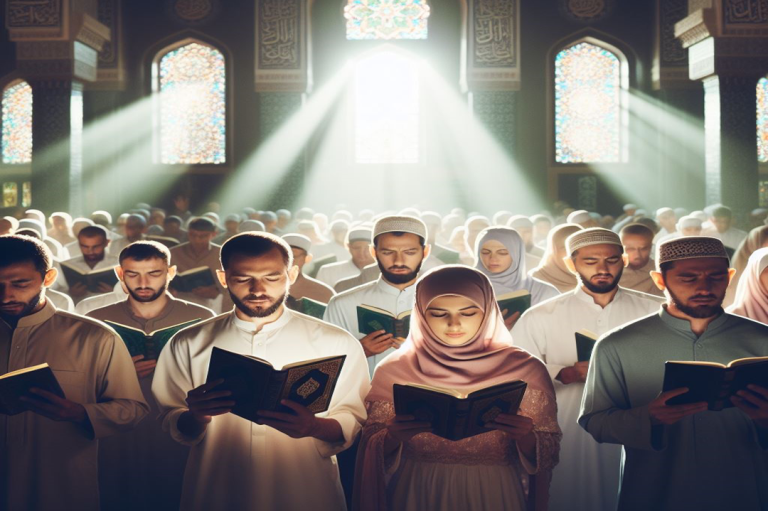The Quran, the holy book of Islam, can be recited in various ways. These different recitation styles are known as “Qira’at” in Arabic. While there are many different recitation styles, the most widely recognized and accepted are the seven canonical recitations, known as the “Sab’ah al-Mutawatirah.” These recitations have a strong historical basis and are considered authentic and reliable.
The reasons for the existence of different recitation
The existence of different types of reciting the Quran can be attributed to linguistic, cultural, and historical factors. Let’s delve into the reasons behind the diversity of recitation types and explore their historical background:
- Linguistic Factors
The Arabic language, in which the Quran was revealed, encompasses various dialects and accents. These linguistic variations naturally influenced the way people recited the Quran in different regions. As Islam spread to different parts of the world, local dialects and accents played a role in shaping the recitation styles. - Oral Tradition
During the time of Prophet Muhammad (S), the Quran was primarily transmitted orally. The Prophet himself recited the Quran in a specific manner, and his companions learned and imitated his recitation. As Islam expanded, local communities developed their own oral traditions of recitation, resulting in variations over time. - Cultural Influences
As Islam spread across different regions, it encountered diverse cultures and traditions. These cultural influences had an impact on the recitation styles. Local customs, musical traditions, and linguistic nuances merged with the recitation of the Quran, giving rise to distinct regional styles. - Historical Development
In the early centuries of Islam, centers of learning and scholarship emerged in various regions. Scholars in these centers had their own unique methods of recitation, which were influenced by the local dialects and the scholars’ own backgrounds. This led to the development of different recitation types across different regions. - Preservation of Authenticity
The diversity of recitation types also played a role in preserving the authenticity of the Quran. By having multiple recitation types, it became easier to detect any errors or discrepancies in the recitation. The different types acted as a safeguard against potential mistakes or alterations in the Quranic text. - Scholarly efforts
Throughout history, scholars dedicated themselves to the study and preservation of the Quranic recitation. They meticulously documented the different recitation types and established schools of recitation. These scholars became experts in their chosen styles and passed down their knowledge to subsequent generations, ensuring the preservation and continuity of each recitation type.
During the time of Uthman Caliph III, he decided to put an end to these differences in recitations. He ordered the collection of Qurans from all Islamic countries, removed them, and with the help of great Islamic scholars, they prepared a unified Quran from seven recitations. He then sent the Qurans to all Islamic countries along with the reciter and ordered all Muslims to use this Quran from now on. However, Muslims still disagreedin reciting the Quran due to several reasons:
• Absence of dots and I’rabs in that Quran
• Being free of “ا” (A) in the middle of words
• Differences in accents
• The opinions and ijtihad of the reciters
One significant development in the standardization of recitation types occurred during the 9th century CE, with the efforts of scholars like Al-Kisai and Hafs. They collected and documented the various recitation types, leading to the recognition of the seven canonical recitations mentioned earlier.
Today, the different recitation types continue to be taught and practiced in various parts of the Muslim world, reflecting the cultural and historical diversity of the Muslim community.
Now let’s delve into learning about these 7 recitations, known as”Qira’at”.
The seven canonical recitations
- Asim
This recitation has been narrated by two narrators: Hafs and Shu’bah. The recitation of Hafs from Asim is the most widely used and popular recitation style across the Muslim world. It is named after the reciter, Hafs ibn Sulayman al-Asadi, who learned the recitation from the prominent scholar ‘Asim ibn Abi al-Najud who in turn learned the recitations from Ali ibn Ali Talib (AS). Today, the Quran is recited based on this recitation. The recitation of Shu’bah from Asim is also attributed to ‘Asim ibn Abi al-Najud but It is less widespread compared to the Hafs recitation though it is still recognized and respected. - Ibn Amer
This recitation has been narrated by two narrators: Hisham bin Ammar and Ibn Zakwan. - Ibn Kathir
This recitation has been narrated by two narrators: Bazzi and Qonbul. - Nafi’
This recitation has been narrated by two narrators: Qalun and Warsh. This recitation is also attributed to Nafi’ al-Madani but was transmitted through another reciter, Qalun. It is mainly recited in parts of Libya and is similar to the Warsh recitation with some slight differences because both Qalun and Warsh learned it from Nafi. - Kasa’i
This recitation has been narrated by two narrators: Leith and Al-Duri. - Hamzah
This recitation has been narrated by two narrators: Khalaf and Khallad. It is named after the reciter Hamzah al-Kufi, and it is mainly recited in parts of Yemen. The Khalaf recitation has some unique pronunciation and linguistic features. - Abu ‘Amr
This recitation has been narrated by two narrators: Hafs Ibn ‘Amir and Susi Saleh. It is attributed to Abu ‘Amr ibn al-‘Ala but was transmitted through another reciter, Ibn ‘Amir. It is primarily recited in parts of Syria and Jordan.
In conclusion, it’s important to note that these different recitations do not change the meaning of the Quran. Instead, they represent variations in pronunciation, intonation, and linguistic aspects, providing different beautiful renditions of the same divine scripture.
If you are interested in learning more about recitation of the Quran, including different styles of reciting, best Quran reciters, or how to become a good Qari, we invite you to join us at our academy and embark on a journey towards becoming an exceptional Qari. This course is designed to help individuals achieve a beautiful recitation of the Holy Quran. If you aspire to recite like a Qari, with a melodious and enjoyable recitation, then this course is perfect for you. Melodious recitation, known as Tarteel, teaches you how to recite at a normal speed while maintaining a wonderful rhythm. It is worth noting that there are seven Meghams (melodies) in melodious recitation, and each one has its own unique way of recitation. Depending on the meaning of the verses, you can adapt the Megham to convey different emotions, such as happiness, sadness, admonition, and more. Throughout the course, you will learn two Meghams at a time and practice imitating them.
For more information, you can visit the website of DarulQuran academy:
https://darulquran.co.uk/









I’m continually impressed by the depth and beauty of Islam. Thank you for making this knowledge accessible to everyone
I’m continually impressed by the depth and beauty of Islam. Thank you for making this knowledge accessible to everyone.